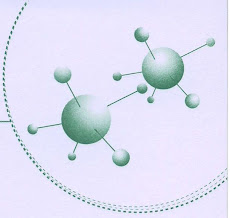What is Sugar toxicity?
Sugar will bind with protein and fat in our body in a process called Glycation which produce pre-formed Advanced Glycation End-products (AGEs). Sugar toxicity or Glucose toxicity is the result of GLYCATION process.
Glycation is the beginning of the damaging process. There are 2 types of glycation process:
1. Exogenus which occurs outside the body mainly in cooking. It happens when sugars are cooked with proteins or fats at temperature over 100 degrees. Browning reactions are evidence of pre-formed AGE e.g. browning in baked goods.
2. Endogenous which occurs inside the body mainly in the blood stream.
Glycation leads to reaction that produce toxins called Advanced Glycation End-products (AGEs). AGE is very harmful to our body, when it is bind with Receptor Advanced Glycation End-product (RAGE) in our body cell. The entire cell wil be damaged and finally lead to necrosis (dying of cells). As we know, cells make up tissues, tissues make up organ, and therefore an organ will reduce its function with dead cells resulting in age-related diseases.
AGE affects 2 categories of people:
1. To Diabetic - it causes damages to heart, kidneys, nerves and eyes.
2. To Non Diabetic - It contributes to all ageing disorders.
What are the ageing disorders related to the harmful effect of AGE?
Nerve problem:
Dementia, Alzheimer's disease, Parkinson disease where the nervous system has been destroyed.
Cardiovascular problem:
Heart attack, stroke - where the damaged blood vessel wall is more permeable to the attack of oxidised cholesterol which causes stiffness of blood vessels hence leading to poor blood circulation.
Eye problem:
Blindness where the small blood vessels in the retina is damaged.
Kidney problem:
Kidney failure where the degraded AGE will be accumulated in kidney and leads to damage of kidney cells.
Pancreas problem:
Diabetes Mellitus where the beta cells responsible for insulin production are damaged. High level of AGE will cause further complication in diabetic patient.
Cholesterol
16 years ago
.jpg)



No comments:
Post a Comment